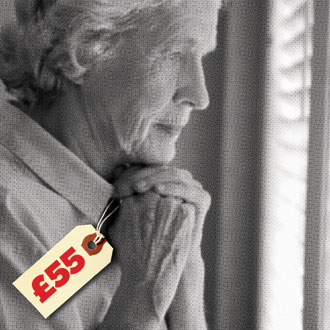Exclusive Six in 10 practices have signed up to the ‘cash for dementia diagnoses’ scheme, which will pay GPs £55 for every additional patient on their list diagnosed with dementia, Pulse can reveal.
NHS England confirmed that 60% of practices have signed up to the ‘important’ enhanced service, which will run until April but will not be extended beyond then.
It follows widespread criticism of the scheme from the profession, with critics saying it amounted to ‘cash for diagnoses’ and could damage the doctor-patient relationship.
GP leaders said that uptake figures were relatively low for an enhanced service, adding that practices would be professional and not let the payments affect their clinical judgement.
Under the terms of the scheme, practice who sign up will be given £55 for every each additional diagnosis of dementia if they show a net increase in cases recorded on their practice register between October 2014 and March 2015.
A Pulse survey before the original deadline for sign-up of 17 November found that at least 40% had signed up or intended to sign up.
However, the vast majority of other practices said they were still deciding, with NHS England extending the deadline to allow greater sign-up.
But the two-thirds of GPs expressed serious doubts about the ethics of the scheme and one Kent practice pledged last month to donate any cash it receive to a dementia care day centre.
However, an NHS England spokesperson told Pulse that the majority of practices had signed up.
The spokesperson said: ‘Sixty per cent of practices have signed up to deliver this important service to their patients but we hope all will make early diagnosis of dementia a priority.
‘For most patients with dementia, their carers and families, timely identification and referral will enable them to plan their lives better, to provide treatment as appropriate, to enable access to other forms of support, and to enhance their quality of life.’
Related stories
GPs split over dementia diagnosis scheme
Why have we signed up for a dementia scheme we don’t believe in?
Deputy chair Dr Richard Vautrey said that the take-up was relatively low.
He said: ‘Take-up figures for other enhanced services tend to be much more than 60%, so this low figure shows the number of practices that don’t think it’s worthwhile.
‘Our concern is that patients may feel that GPs are asking them questions about memory loss for financial gain. We have to be careful not to do anything that would undermine the doctor-patient relationship.’
Dr Vautrey said his own practice had signed up to scheme, however. Asked how he would avoid patient concerns, he said: ‘By being professional and ensuring that you don’t change your clinical practice as a result of the scheme.’
Dr Martin Brunet, a GP in Godalming, Surrey, has refused to sign up. He said: ‘You can look at this two ways: either 60% per are signing up or 40% are refusing. I know that plenty of GPs disagree with it, but they are also trying to balance their books and I can understand why they might sign up.
‘I’ve no objection with GPs diagnosing people with dementia, but problem is about introducing money into the equation. If you pay someone for a diagnosis you don’t know automatically that it’s a worthwhile diagnosis or whether it was properly explained to patient or whether they are getting good follow-up support. No one’s looking at those aspects.’
Last month, a group of leading GPs, consultants and health campaigners called for the scheme to be scrapped.
In an exclusive interview with Pulse, NHS England chief executive Simon Stevens said that they will not renew the DES after April.
Pulse October survey
Take our July 2025 survey to potentially win £1.000 worth of tokens















